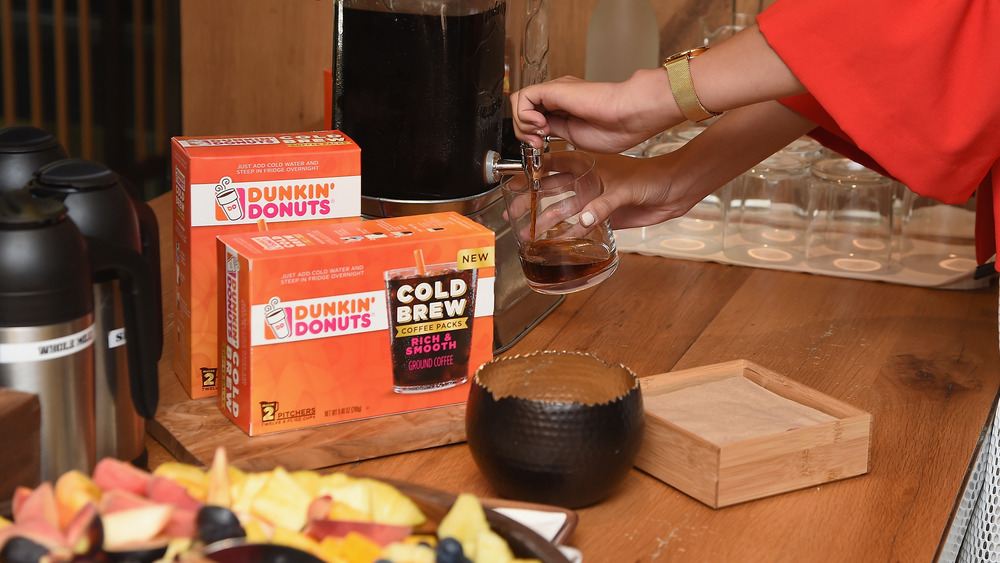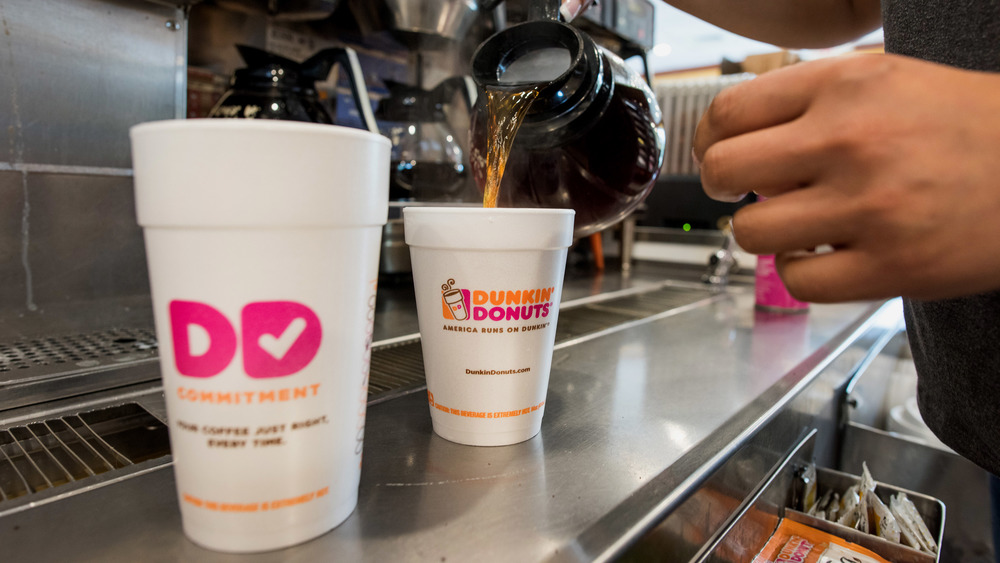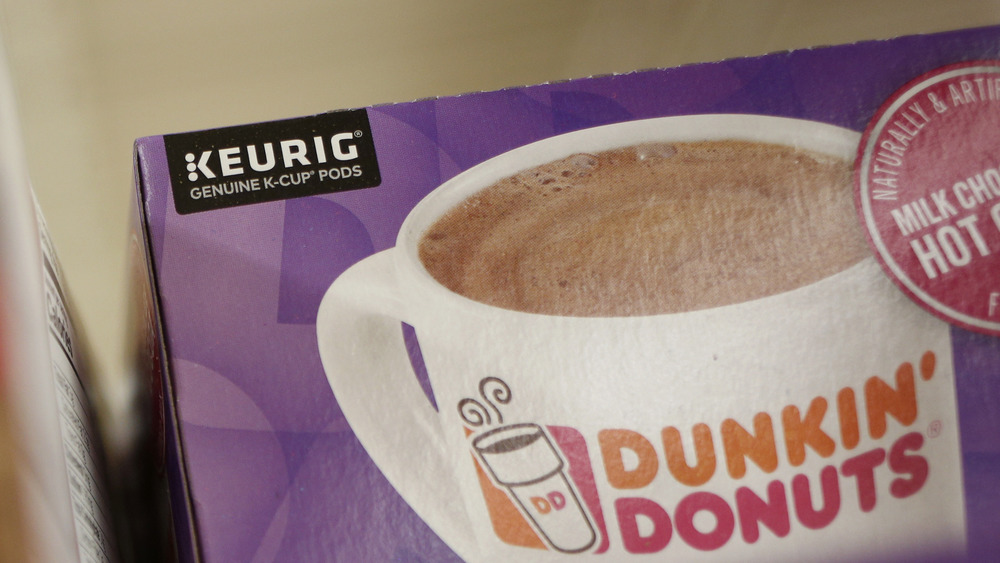The Issue With Dunkin' K-Cups
There is a reason so many folks love Dunkin's coffee, and it has to do with the amount of TLC that's put into its java beans. The company has coffee tasters who have been known to taste 100 cups of coffee a week (she said she could go through that much in a day too, but who's counting?) from suppliers who have already pre-tested the beans. The company has its own system that can rate coffee on a 1 to 7 scale for several qualities: acidity, aroma, sweetness, finish, body, and balance (via The Boston Globe).
Dunkin' is so fussy it can reject an entire shipment of coffee if just one out of 12 cups fails a taste test. Doing that might even be easier than it sounds, because the beans come from many different parts of the world, and their flavors are also subject to the whims of Mother Nature.
So if we thought that Dunkin' would be exercising the same level of care with the beans that they sold under its Dunkin' branded K-cup line, Mathew Woodburn-Simmonds, founder of Home Coffee Expert tells Mashed that we'd be way off the mark because "the stuff sold for K-cups, etc. to use at home as it isn't the same blend they use in their shops. So you can never fully recreate the coffee you love at home."
Dunkin' K-cups don't use the same blend of coffee as the in-store kind
Woodburn-Simmonds calls the business proposition that you can reproduce restaurant-quality coffee from Dunkin' K-cups "pretty disingenuous at best." "Anything that uses pre-ground coffee will be worse than fresh ground from a good grinder. Even though the grounds are sealed in a pod, they have been exposed to air and an industrial-sized grinder, you have lost some of the precious oils that give coffee so much flavor in the processing of the beans," he tells Mashed.
Woodburn-Simmonds also points out that while K-cups might be convenient in the short term, not only is the coffee it delivers less than perfect, but the plastic vessels themselves are bad for the environment. "They're really difficult to recycle. In cities where they can be recycled you often have to separate them into their constituent parts and recycle them separately. This obviously isn't ideal, to be generous," he says.
K-cups cannot be easily recycled
Because they cannot be readily recycled and end up in landfills, Greenpeace USA has said that coffee pods can pollute rivers and over time break down into smaller pieces that end up killing wildlife (via USA Today). It might sound like a stretch, but a spokesman for Keurig said the company had sold 10.5 billion K-cups in 2015 alone. A percentage of that will be enough to do some damage.
"Recycling is actually at the end of the chain on how we should be thinking, refuse, reduce, reuse, and then recycle. So if you're at the end of the chain and it's so complex a lot of people won't bother, you have a big problem," Woodburn-Simmonds tells Mashed.
If the environment is the price for a bad cup of coffee, Dunkin' fans are probably best sticking with the OG, particularly if the closest store isn't too far away.


